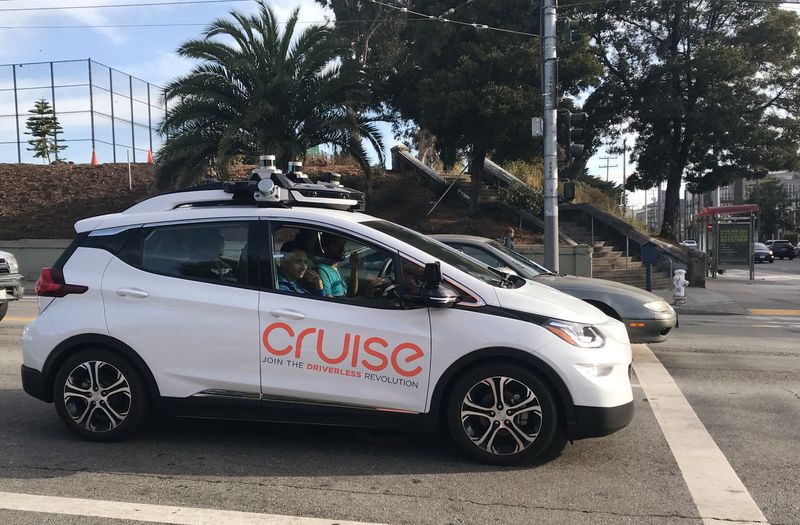(This Feb. 2 story has been corrected to remove the word ‘Chinese’ from paragraph 9)
By Abhirup Roy
SAN FRANCISCO (Reuters) - Completely driverless vehicles traveled nearly 3.3 million miles in California last year, over five times the previous year's total, even as concerns rose in the wake of a Cruise robotaxi accident, state data on vehicle testing released on Friday showed.
General Motors (NYSE:GM)' Cruise and Alphabet (NASDAQ:GOOGL)'s Waymo accounted for the bulk of the miles - 63% and 36% respectively - recorded without a safety driver, according to the state's department of motor vehicles (DMV).
Taxis with empty driver's seats have become common in the San Francisco area. The Cruise accident, in which an autonomous vehicle hit and dragged a pedestrian 20 feet (6.1 meters), sparked a public outcry and prompted the company to halt operations across the country.
Autonomous tests with a safety driver rose to 5.7 million miles from 5.1 million, DMV data from Dec. 1, 2022 to Nov. 30, 2023 showed.
Supporters of self-driving technology have long claimed it can be safer than human drivers who may drive drunk, while texting, or fall asleep behind the wheel.
San Francisco residents, city agencies and some labor unions complain that robotaxis disrupt traffic and put people at risk with their erratic driving and abrupt stops in the middle of busy roads.
In October, the DMV suspended testing and deployment permits for Cruise, which is facing multiple investigations, including one by the Justice Department.
On Friday, DMV said 38 companies had permits to test their autonomous vehicles with a safety driver.

Six of them have been permitted for driverless testing: Waymo, Amazon (NASDAQ:AMZN)'s Zoox unit, Chinese search giant Baidu (NASDAQ:BIDU)'s Apollo, and startups Nuro, WeRide and AutoX.
Concerns about Chinese companies testing autonomous vehicles have also grown, with some U.S. lawmakers calling for greater transparency over their collection and storage of sensitive data on citizens, infrastructure and technologies.